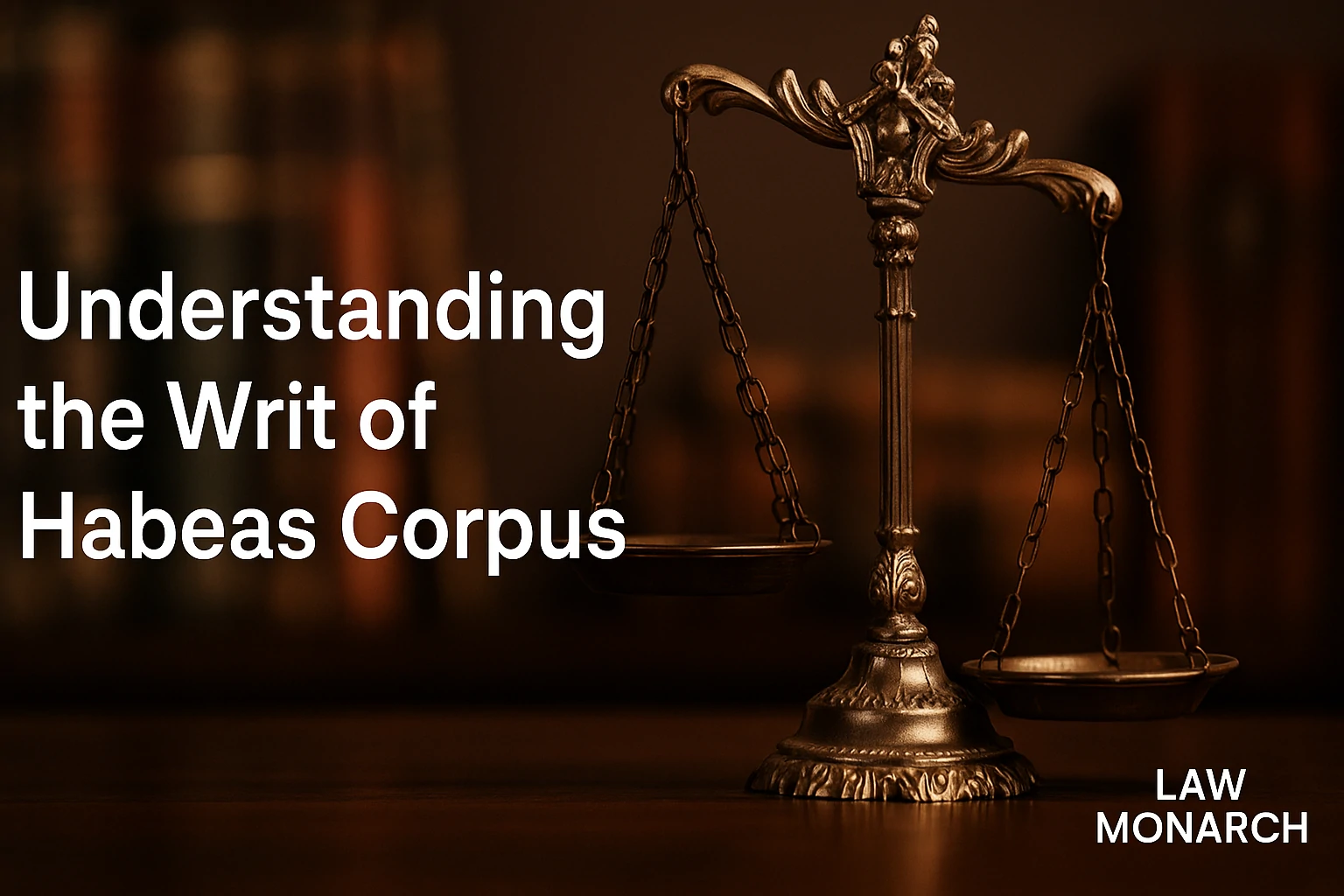The justice system gives people a powerful tool called the writ of habeas corpus. These words sound old, but their meaning still matters today. This legal tool protects your right not to be held in jail without a fair reason. It asks the court to check if your arrest or prison time is lawful.
People often feel stuck after a conviction. They may think nothing else can be done. But this writ gives them another chance. It opens a door to review their case again. When used the right way, it can fix serious mistakes. It can free a person held for the wrong reasons.
The court process is not simple. It has rules, deadlines, and strong opposition. That is why people turn to law firms with real experience in habeas corpus cases. These firms know how to work through the system. They fight to prove when a person’s rights have been broken.
This article explains how the writ works, who it helps, and why a skilled law firm makes a difference. If you or someone you care about is behind bars and feels justice failed, this guide can show you where to start.
What Is a Writ of Habeas Corpus?
A writ of habeas corpus is a legal request. It asks the court to look at why a person is in jail. If the reason is weak or unfair, the judge can order release. This rule stops illegal prison time. It also makes sure the government cannot ignore basic rights.
The phrase means “bring the body.” In law, that means the jail must bring the person to court. Then the judge checks the facts. If the court finds the jail made a mistake, it can fix it.
This writ is not used for every case. It is not a second trial. It looks at the law and the process. It asks if the person got fair treatment. If not, the judge may act.
Who Can Use It?
A person in jail can file the writ. Their lawyer can also file it for them. Some people use this tool after they lose an appeal. Others use it when they learn new facts or believe their rights were ignored.
Family members may help too. They often contact a lawyer to ask for help. The lawyer reviews the case. If they find a reason, they prepare the court papers and send them in.
The court then decides if the case can move forward. If it does, a hearing may follow. This is where the facts come out and the judge listens to both sides.
Why Legal Help Matters
Habeas corpus cases take skill. Many people file on their own and fail. Courts want clear facts and strong legal papers. One error can close the case before it begins.
Lawyers who handle these cases understand the process. They study trial notes, past rulings, and police records. They find the mistakes that others missed. Then they build a case that proves the law was not followed.
A law firm also knows how to meet strict time limits. Courts do not wait. If someone files too late, they may lose the right to be heard. A good lawyer moves fast and stays on schedule.
Judges respect a case built the right way. A strong lawyer tells the story, shows the facts, and links it all to the law. That makes the court stop and listen.
What a Law Firm Does
A writ of habeas corpus law firm starts with research. They ask questions. They review what happened. They collect court files, trial notes, and appeal results. They look for errors that broke the rules.
Next, they write the petition. This paper tells the court why the person should not be in jail. It shows what went wrong and asks the court to act.
If the court allows it, a hearing takes place. The lawyer may speak in court. They may bring in experts or point to key records. They fight to prove that justice failed.
If the judge agrees, they may order release. In some cases, they may order a new trial or shorten the sentence. If the court says no, the firm may still appeal.
Reasons the Writ May Work
Many things can lead to a writ. Some people were never given a fair trial. Some had lawyers who failed to defend them. Others were sentenced under the wrong law. Some now have proof that shows they did not commit the crime.
The court reviews these problems. If it finds a serious mistake, it has the power to fix it. The law gives the court that right, and the writ makes it possible.
This is not about loopholes. It is about justice. It is about stopping wrongful jail time. A strong case gives the court a reason to act.
Picking the Right Law Firm
Not all law firms know how to handle these cases. You need a team with real experience. Ask if they have worked on writs before. Ask what results they got. A good firm will be honest and clear.
Also ask how they treat their clients. Do they answer your questions? Do they return your calls? You need lawyers who care about your case and your future.
Look at how they charge. Some ask for flat fees. Others charge by the hour. Make sure you understand the costs. Ask if payment plans are an option.
Pick a firm that focuses on you. Your freedom, your case, and your voice must come first.
How This Help Changes Lives
A person held too long can lose years. They miss birthdays, jobs, and moments that matter. A successful writ gives that time back. It returns a father to his kids, a sister to her home, or a son to his mother.
The legal win brings more than freedom. It shows that truth matters. It gives the person a chance to rebuild. It also helps others see that the law can work when used with care.
Lawyers in these cases know this is not just about papers. It is about people. It is about second chances. It is about justice that shows up, even late.
Conclusion
The writ of habeas corpus gives people the power to speak up. It lets the court hear one clear question: Should this person be in jail? If the answer is no, the court can take action. This legal tool helps protect freedom and stop unfair jail time.
Many people feel trapped after a trial. Some think the fight is over. Others do not know what rights they still have. But the law gives them one more way forward. A writ is more than a form. It is a chance to ask for justice when nothing else worked.
You do not have to face this alone. A skilled law firm can help. They know the law. They know the process. They know how to build a strong case and stand beside you from start to finish.
If you or someone you love sits behind bars and something feels wrong, do not stay silent. Reach out. Speak with a lawyer who handles habeas cases. Ask the questions. Take the first step toward freedom today.
Questions You May Have
Q. Who can file a writ of habeas corpus?
Any person in jail or prison can file. A lawyer can help. A family member may also begin the process with legal support.
Q. What does the court check in these cases?
The court reviews if the jail time follows the law. It looks for missed rights, legal errors, or unfair steps in the case.
Q. Is it possible to file a writ after losing an appeal?
Yes. The writ gives another way to ask for justice. It can help even after other legal steps have failed.
Q. How long does it take to get a result?
Each case is different. Some move fast. Others take more time. A strong lawyer works to avoid delay and keep the case moving.




